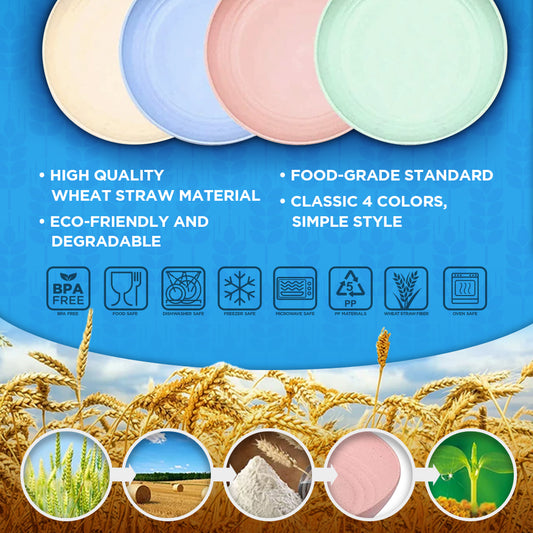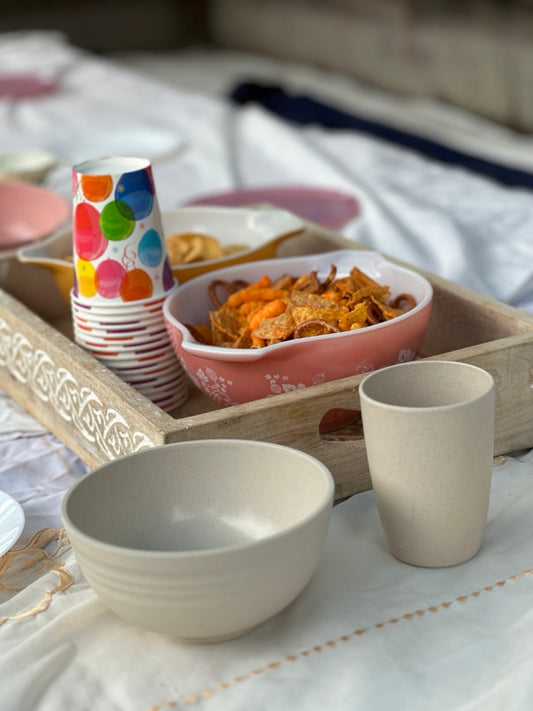Wheat is a grass that is widely grown for its seed, a cereal grain that is a common diet all over the world. The genus Triticum includes numerous types of wheat, with common wheat being the most extensively cultivated (T. aestivum). Around 9600 BCE, according to the archaeological record, wheat cultivation began in the Fertile Crescent. The wheat kernel is a type of fruit known as a caryopsis in botany.
More land is used to grow wheat than any other type of food crop (220.4 million hectares or 545 million acres, 2014). More wheat is traded globally than all other crops combined.
What is wheat straw plates or wheatgrass plastic?
Wheat is a grain and residue used in plastic production after wheat is harvested. Natural polymers are obtained from wheat straw, and cellulose is broken down into plastic. Natural polymers, like nails and hair, are also found in the human body. The plastic produced from it is entirely natural.
It is currently used to make wheat straw plates and wheat straw dinnerware sets. This type of weed plastic is recycled plastic. 100% wheat straw pots are mixed with soil after a while. Since they are free of resin, BPA and all kinds of chemicals that are harmful to health, these wheat straw plates, bowls, salad plates, and dinnerware sets are suitable for the health of children and adults.
Advantages of using wheat straw plates:
Wheat straw is biodegradable. They are gluten-free and non-allergenic, in addition, they are reusable and naturally anti-bacterial. Prepared by a blend of wheat straw and wood fiber, all-natural elements. On the other hand, traditional plastic create a disadvantage for our life, as it release toxic substance to the soil and in the air.
One piece of plastic contains 80 per cent deadly carbon. Burning one kg of plastic produces 2.9 kilograms of carbon. Plastics use various materials, such as carbon, sulfur, chlorine, hydrogen, nitrogen, and oxygen.
BPA is a notoriously harmful chemical found in plastics that is to blame for our health issues. Bisphenol A and phthalates are the main components of the water bottle. When we drink water, these chemicals may slowly leak out of plastic bottles. According to studies conducted by Stefanie Hellweg of the Swiss university ETH Zurich, there are 10,500 compounds in plastic.
Given the aforementioned considerations, using wheatgrass products is preferable for my family and I.





